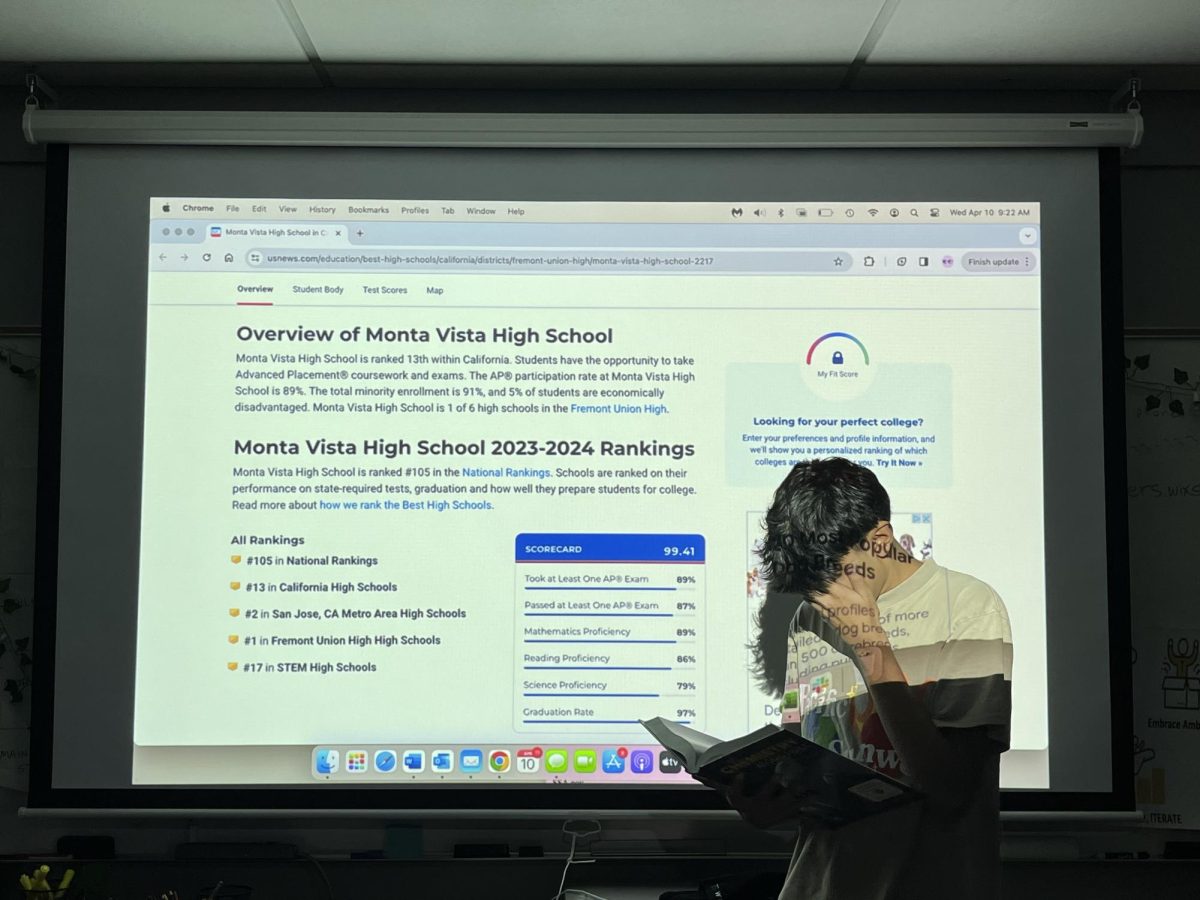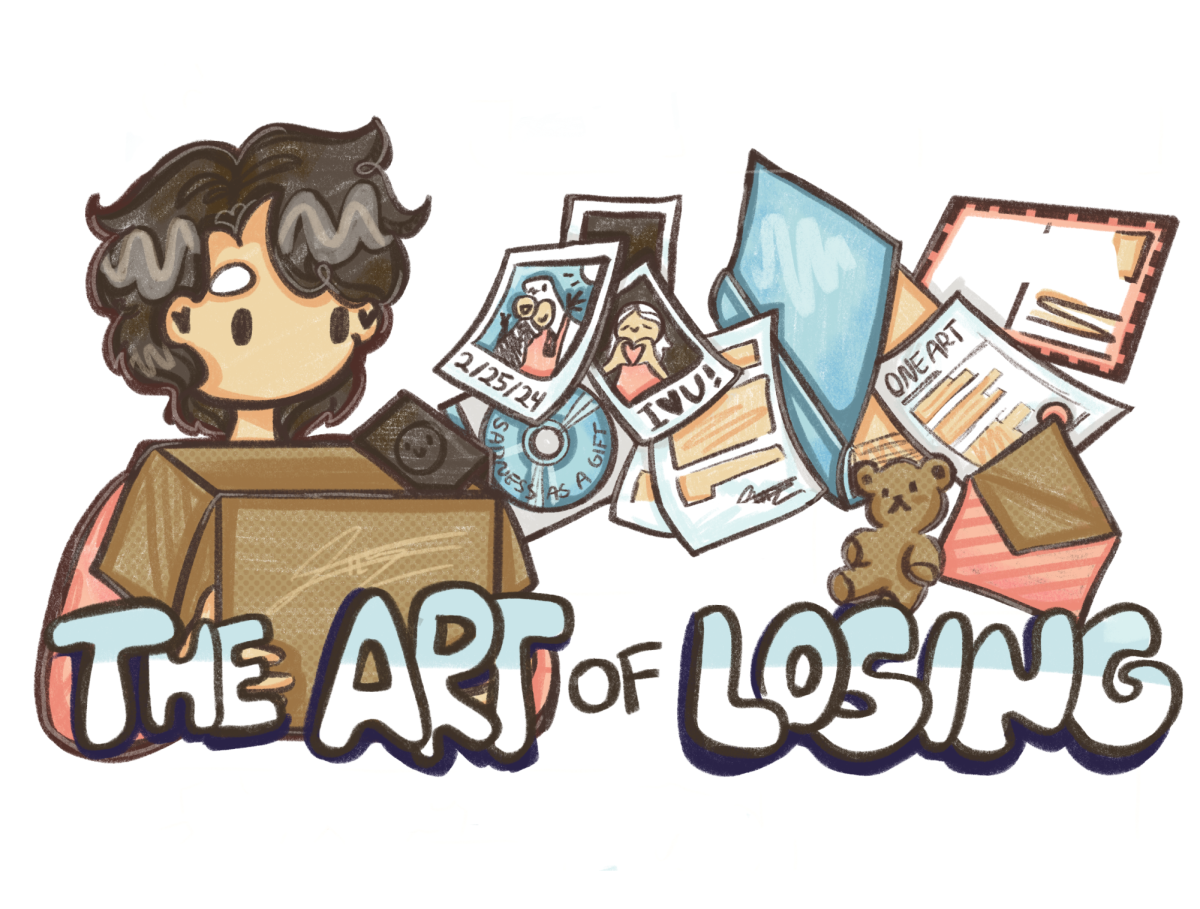As a Link Leader last year, I saw the privilege of checking on my “Link kids’” grades as a positive one. In the spirit of openness, I told my Link kids that I would be checking up on their grades, reminding them that it was only to provide help if necessary. I vividly remember the reactions of the group. Some smiled smugly, as if their A’s in freshman Biology and Algebra 2 would impress me, and most didn’t think much of it. But one face caught my attention. It was marred by visible fear, which I presumed was a fear of judgement, of embarrassment, of disappointment.
This freshman, who technically had not even started high school yet, was afraid that someone would see his grades.
This scared me in two ways: first, he was setting himself up for academic failure. Second, and more importantly, that he felt as if his grades defined him as a person. He had this deeply internalized belief that he was a bad student, that he wouldn’t be able to succeed. Somehow, he was made to believe that the accumulation of points he received for completing tedious worksheets — not an uncommon occurrence in the average classroom — was reflective of his abilities as a person. He had barely gotten to know me, and had already assumed that I would see him differently once I opened his School Loop account. This freshman was conditioned to feel this way.
The Boomerang Project, the national organizer of Link Crew, defines it as a program that eases the move from middle school to high school. As part of achieving this goal, it makes sense that Link Leaders’ ability to check their freshmen’s grades not only fosters academic success, but also serves a deeper purpose. It may be the solution we’ve been looking for to diffuse the compulsive obsession we have with each other’s grades at MVHS. Everyone is either sharing their grades or hiding their grades, usually out of a fear of social chastisement.
Among the many functions that Link serves, the most important is serving as a high school transition program for confused freshmen. We have all experienced the daunting bureaucracy of the public school system in our underclassmen years, not to mention the social adjustment to the new surrounding; Link makes MVHS more navigable and approachable for each year’s incoming class.
So is it surprising that Link Leaders can access their Link kids grades? Not at all.
Many freshmen, who are otherwise bright individuals, struggle with the transition to high school. I remember my first year at MVHS — I didn’t know how to study effectively and ended up with a few Cs littering my transcript. Out of embarrassment, I rarely sought the help of my teachers. My embarrassment stemmed from our school’s culture of competition, in which we often equate grades with self-worth. Unfortunately, my Link Leaders were not there to help me in my time of need. This is why Link Leaders are allowed to access their freshmen’s grades, so that they can provide a nonjudgmental helping hand to new Matadors in an ever-competitive and judgemental community. So that they can help freshmen feel accomplished.
Fortunately, there have been efforts to reduce competition and the obsession over grades on our campus. It is not unheard of for people to pledge, either formally or informally, to stop sharing their grades with peers. Most of us have been there. When we receive a good grade on a test we studied so hard for, we want to tell our friends what we earned. It can be hard on the receiving end, especially when we didn’t do as well. This is why the movement to end grade-sharing is admirable, as it aims to deemphasize the personal importance we assign to our grades.
However, it does not solve the problem at its root. The movement to end grade-sharing has its place, but it mostly sensitizes the issue. It gives more power to grades, justifying the obsession to hide one’s grades from others at all costs. Opposite of its intentions, it legitimizes the idea that grades are a reliable indicator of ability or worth.
This sensitization of academic performance begs the question: should Link Leaders be checking on their Link kids’ grades more often? This might seem intrusive to some, but it could potentially be a step forward in desensitizing grades and reducing competition at MVHS. If a trusted upperclassmen can regularly check in on a younger student’s grades without judgement of character, it sends the message that grades do not define our value. It takes away the power that we often collectively consign to scores and numbers.
I followed up with my former link kid, who wishes to stay anonymous, one year later. This time, he carries himself with confidence.
“Right now, it doesn’t seem like that big of a deal,” he said as we recounted our experience last year, “but at the time, maybe I thought it was a bit awkward for a high school student to look at another high school student’s grades.”
Of course, his fear stems from MVHS’ notorious level of competition.
“I think most everyone here [defines each other by their grades], especially given the type of environment at this school. [Students] are indirectly taught to base a person on their academic ability,” he said.
“I do think that [having Link Leaders monitor their Link kids’ grades] could help,” he said. “I know a lot of people, especially freshmen, when they are struggling tend not to show their grades to their parents and just keep them to themselves. If they keep on doing that, they might dig themselves into a hole that they can’t come out of. If they can’t show their parents or their teachers, I think there should be some sort of outside assistance.”
The first-year experience of each incoming class defines the future of MVHS’ campus culture. If we can foster a freshman class in which grades are only important to the individual student, we can make progress in eliminating the social stresses that often accompany our report cards. We should not be sensitizing our grades even further if our goal is to create a less judgemental community. We simply need to recognize that there’s a discernible solution. Link leaders should check in on their freshmen’s academic performance more often. It might not be immediately obvious, but we could be leaving an important legacy on our campus values for the better.





















